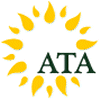The upcoming Australian Solar Credits scheme, due to replace the current Solar Homes and Communities Program $8,000 rebate in July this year, has come under scrutiny by the Alternative Technology Association (ATA).
“Homeowners are taking money from their own pockets to install solar and in return for their efforts the government is giving them phantom Renewable Energy Certificates (RECs) that do not equate to real clean energy production,” says Damien Moyse, ATA’s Energy Advocate.
A survey conducted by the ATA, found that a key motivation for people who install solar is the desire to increase renewable energy generation in Australia.
“By handing out phantom RECs, the government is putting homeowners in the difficult and perverse position of either forgoing any financial support to install solar or increasing the amount of dirty electricity in Australia”.
“Under this phantom credits scheme, installing a solar panel will actually mean less power will come from renewable sources,” says Mr Moyse.
The government’s revised Renewable Energy Target, under the planned emissions trading scheme, will use RECs as the trading currency for green power. One REC is equal to one megawatt-hour of clean electricity generation.
RECs created with the installation of new roof-top solar panels, can be sold to reduce the up-front cost of the system. The current selling price for one REC is $49.
Under the Solar Credits Scheme, which replaces the Solar Rebate in July this year, homes that install solar panels will be awarded with five-times the amount of Renewable Energy Certificates (RECs) for every megawatt-hour of clean energy their system produces.
By multiplying the RECs for solar panels, the government will be supplying homeowners with enough RECs to recoup up to $7000 on the sale of their RECs.
Mr Moyse says it is vital the government provides financial support to encourage the uptake of climate-friendly solar systems, but the decision to use phantom RECs to boost the financial incentive, is putting people wanting to go solar, between a rock and a hard place.
“Four out of the five RECs will be phantom and will not equate to actual clean energy production,” says Mr Moyse.
“Phantom solar credits benefit no one. The ATA is calling for a nationally consistent, gross feed-in tariff for small scale renewables which will provide adequate financial incentive to homeowners and equate to real clean energy generation in Australia,” Mr Moyse says.












































